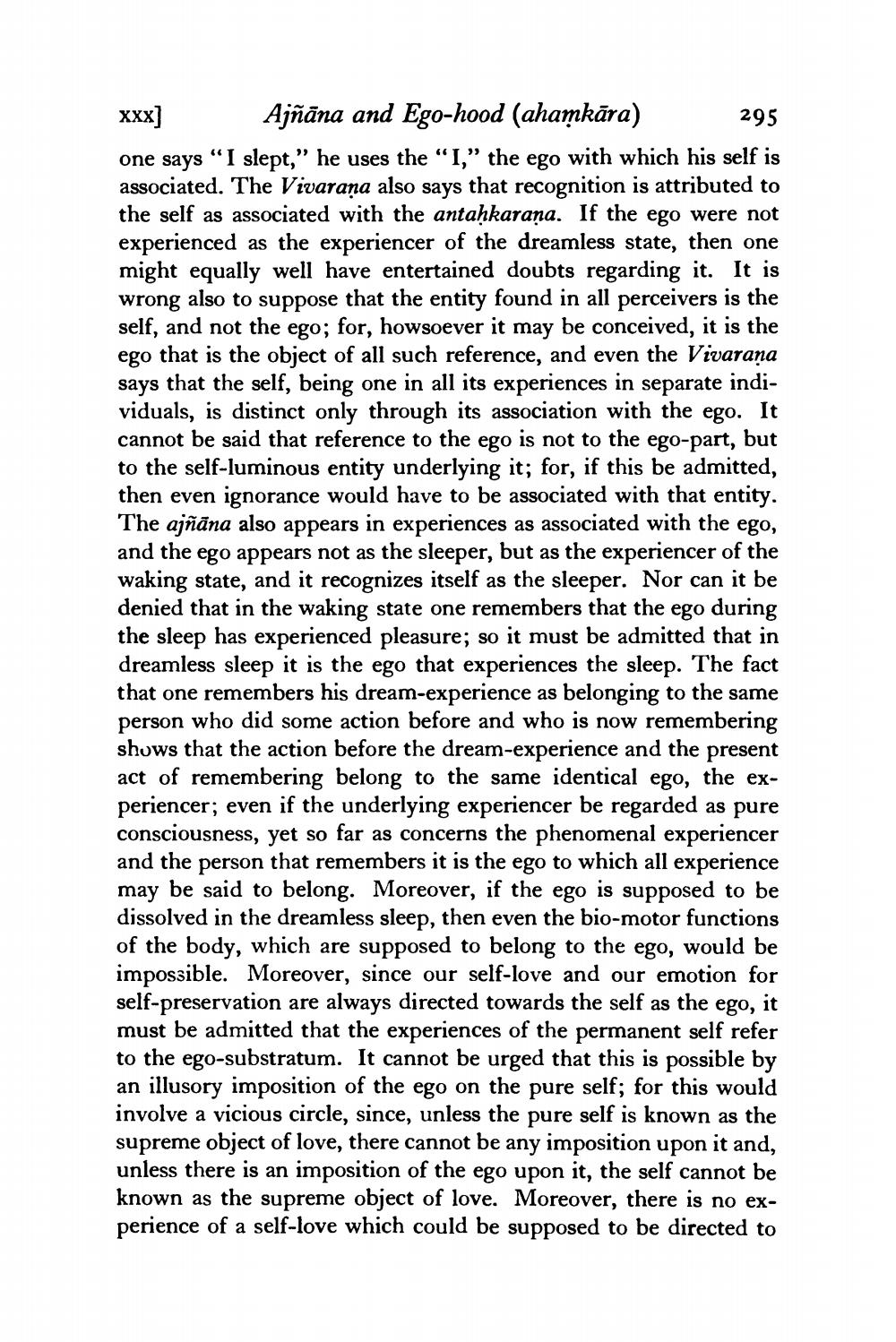________________
XXX Ajñāna and Ego-hood (ahamkāra) 295 one says “I slept,” he uses the "I,” the ego with which his self is associated. The Vivarana also says that recognition is attributed to the self as associated with the antahkarana. If the ego were not experienced as the experiencer of the dreamless state, then one might equally well have entertained doubts regarding it. It is wrong also to suppose that the entity found in all perceivers is the self, and not the ego; for, howsoever it may be conceived, it is the ego that is the object of all such reference, and even the Vivarana says that the self, being one in all its experiences in separate individuals, is distinct only through its association with the ego. It cannot be said that reference to the ego is not to the ego-part, but to the self-luminous entity underlying it; for, if this be admitted, then even ignorance would have to be associated with that entity. The ajñāna also appears in experiences as associated with the ego, and the ego appears not as the sleeper, but as the experiencer of the waking state, and it recognizes itself as the sleeper. Nor can it be denied that in the waking state one remembers that the ego during the sleep has experienced pleasure; so it must be admitted that in dreamless sleep it is the ego that experiences the sleep. The fact that one remembers his dream-experience as belonging to the same person who did some action before and who is now remembering shows that the action before the dream-experience and the present act of remembering belong to the same identical ego, the experiencer; even if the underlying experiencer be regarded as pure consciousness, yet so far as concerns the phenomenal experiencer and the person that remembers it is the ego to which all experience may be said to belong. Moreover, if the ego is supposed to be dissolved in the dreamless sleep, then even the bio-motor functions of the body, which are supposed to belong to the ego, would be impossible. Moreover, since our self-love and our emotion for self-preservation are always directed towards the self as the ego, it must be admitted that the experiences of the permanent self refer to the ego-substratum. It cannot be urged that this is possible by an illusory imposition of the ego on the pure self; for this would involve a vicious circle, since, unless the pure self is known as the supreme object of love, there cannot be any imposition upon it and, unless there is an imposition of the ego upon it, the self cannot be known as the supreme object of love. Moreover, there is no experience of a self-love which could be supposed to be directed to




